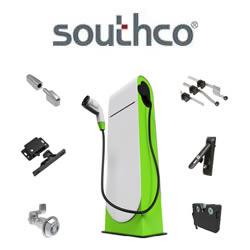Senate Energy Bill Will Save Consumers and Businesses At Least $400 Billion
The American Council for an Energy-Efficient Economy (ACEEE) estimates that the energy efficiency portions of the energy bill that passed the Senate last night are more than triple the savings from legislation passed by Congress in 2005, and more than seven times the savings from legislation passed in 1992.
Washington, D.C. (December 14, 2007): The American Council for an Energy-Efficient Economy (ACEEE) estimates that the energy efficiency portions of the energy bill that passed the Senate last night are more than triple the savings from legislation passed by Congress in 2005, and more than seven times the savings from legislation passed in 1992. These provisions will save U.S. consumers and businesses more than $400 billion dollars between now and 2030, accounting for both energy cost savings and the moderately higher cost of energy-efficient products. These provisions will reduce U.S. energy use in 2030 by 7% and U.S. carbon dioxide emissions in 2030 by 9%, relative to the 2007 Department of Energy forecast. Two provisions were dropped from the bill yesterday -- an energy efficiency and renewable energy portfolio standard, and extensions of energy efficiency and renewable energy tax incentives. If these provisions had not been dropped, 2030 energy savings would have been about 11% greater.
About 60% of the energy savings in the bill come from the first significant increase in car and light truck fuel economy standards in two decades, as well as initiation of a program to develop fuel economy standards for medium and heavy trucks. Other major energy savings provisions are new efficiency standards for lamps, appliances, and other products (accounting for about 22% of the 2030 savings), a new commercial building program designed to dramatically reduce commercial sector energy use over several decades (about 8% of the savings), and a strengthened program to address energy-intensive industries (7% of the savings).
In response to the bill, Executive Director Steven Nadel stated: "The bill that passed the Senate is an important step in efforts to address our nation's energy problems and the threat of global warming to our planet. We see this bill as a critical down payment to address these issues, but much more will be needed from future Congresses and Administrations. We are particularly gratified that the bill includes new efficiency standards for incandescent lamps and other products plus authorization for the Department of Energy to set regional standards for heating and cooling equipment, based on provisions that ACEEE negotiated with industry. We were disappointed that provisions addressing energy efficiency and renewable energy tax credits and portfolio standards were deleted, despite majority support in both the House and Senate, but hope these provisions will be enacted either next year or after the 2008 elections."
Transportation Program Director Therese Langer added, "The fuel economy provisions of the energy bill represent a giant step forward, bringing us cars and light trucks that use almost 30% less fuel than today's vehicles, and putting heavy trucks on the path toward greater efficiency as well. The new standards will save us over 1 million barrels of oil per day by 2020 and close to 2 million barrels per day by 2025, while delivering commensurate reductions in vehicles' greenhouse gas emissions and saving consumers tens of billions of dollars annually. The automakers have acknowledged at last the need for this step and their ability to produce the vehicles that will get us there, and they will be far better positioned to compete in both the domestic and global vehicle markets as a result. There's much that remains to be done to make the U.S. transportation sector sustainable, but job number one has now been accomplished."
Details on ACEEE's analysis can be found at http://aceee.org/energy/national/nrgleg.htm. This is a preliminary analysis. Relative to earlier ACEEE analyses, some of the savings estimates were modified based on changes in the bill and use of newly available data and estimates.
###
The American Council for an Energy-Efficient Economy is an independent, nonprofit organization dedicated to advancing energy efficiency as a means of promoting both economic prosperity and environmental protection. For information about ACEEE and its programs, publications, and conferences, contact ACEEE, 1001 Connecticut Avenue, N.W., Suite 801, Washington, D.C. 20036-5525 or visit http://aceee.org.
Featured Product

